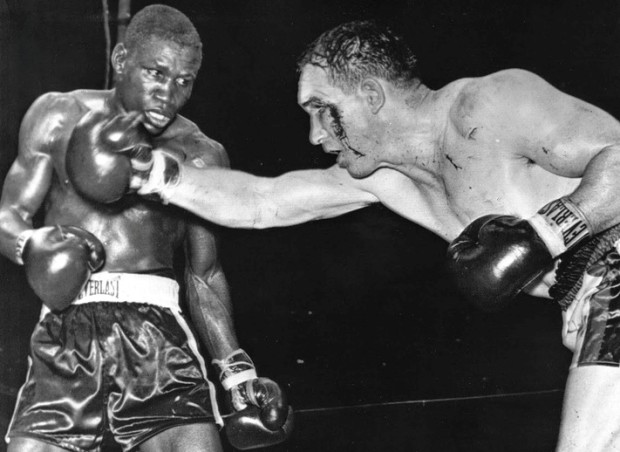
What does a Biafra army lieutenant and a two-time undisputed world middleweight champion have in common? Richard Ihetu, better known as, Dick Tiger unites them.
Tiger became a two-time undisputed world middleweight champion and helped keep boxing alive during the 1950s boxing industry recession. Tiger won the world middleweight title when he beat Gene Fullmer in 1962 and the light heavyweight title in 1966 when he dethroned José Torres of Puerto Rico.
The Nigerian-born professional boxer born on August 14, 1929 learned to box from British military officers stationed in Nigeria. He became a professional boxer in his homeland in 1952, going on to win the Nigerian championship in the middleweight division before moving to England in 1955.

During the civil war in Biafra (May 1967–January 1970), Tiger served in the Biafra Army as a public relations officer and also trained soldiers in hand to hand combat. An ethnic Igbo, he opted to serve in the Biafra Army, a secessionist group seeking autonomy from the Nigerian state. He became a lieutenant. The Biafra effort was, however, quelled.
By 1957, using Liverpool as his fighting base, Dick Tiger fought on the undercards for small purses, when he landed a big fish.

He landed a technical knockout (TKO) to Terry Downes at Shoreditch Town Hall after six heats. By a year’s time Tiger had taken 17 of 19 fights and won the British Middleweight title. He knocked out Pat McAteer to become the British Commonwealth middleweight champion on March 27, 1958.
Through independent promoter Jersey Jones, he came to America in 1959 but the American project had its moments and downsides.
He won the World Boxing Association (WBA) middleweight title over American Gene Fullmer. He lost the title against Joey Giardello then beat him to win before losing again to Emile Griffith.
Tiger would then be managed by independent promotion at Edmonton, Alberta but he would lose to local challenger Wilf Greaves after 15 rounds of boxing under questionable circumstances.
Tiger was described as sincere and honorable in his dealings but these same virtues were not reciprocated by his opponents in the U.S.
Gene Fullmer also noted: “Tiger was a rough guy….I went to Nigeria to fight him, and, of course, I don’t know what happened over there….He beat me. He beat me bad. My mother and father could have been judge and referee, and I couldn’t have won a round…”
Joey Giardello added: “I thank Dick Tiger because Dick Tiger was a man and Dick Tiger gave (a title shot) to me. He didn’t have to give it to me. He could have give it to somebody else.”

Numerous accounts of Tiger as both man and fighting man, describe a solid, decent, un-nuanced person. His match against Frankie DePaula, which saw both men go down twice in its first four rounds, was selected by Ring magazine as “Fight of the Year”. He won the fight.
Despite his win, ill treatment on the American side against Tiger continued when Frankie DePaula, the man he had defeated, was inexplicably given the chance at Bob Foster.
He retired in July 1971, after fighting in 81 professional matches, winning 61 (26 by knockouts), losing 17, and drawing 3. Tiger was inducted into the International Boxing Hall of Fame in 1991. The Ring magazine named him Fighter of the Year in 1962 and 1965, while the Boxing Writers Association of America (BWAA) named him Fighter of the Year in 1962 and 1966. In 2002, Tiger was voted by The Ring magazine as the 31st greatest fighter of the last 80 years.
He is said to have relinquished his O.B.E title won in London as a protest act, saying he couldn’t wear the belt around his waist while the British government kept supplying ammunition to the Nigeria state to kill his people in Biafra.
After retiring from boxing, Tiger worked as a guard at the Metropolitan Museum of Art in New York having returned from Nigeria after his stint in the Biafra war. He had lost his property and money in the war. On an occasion Tiger felt a sharp pain in his back, doctors diagnosed him with liver cancer.
The Nigerian government had banned him because of his involvement in the Biafra movement, but when news of his imminent death emerged, he was pardoned, dying in the country of liver cancer on December 14, 1971, aged 42.
Comments
Post a Comment
https://saviournicodemus.blogspot.com